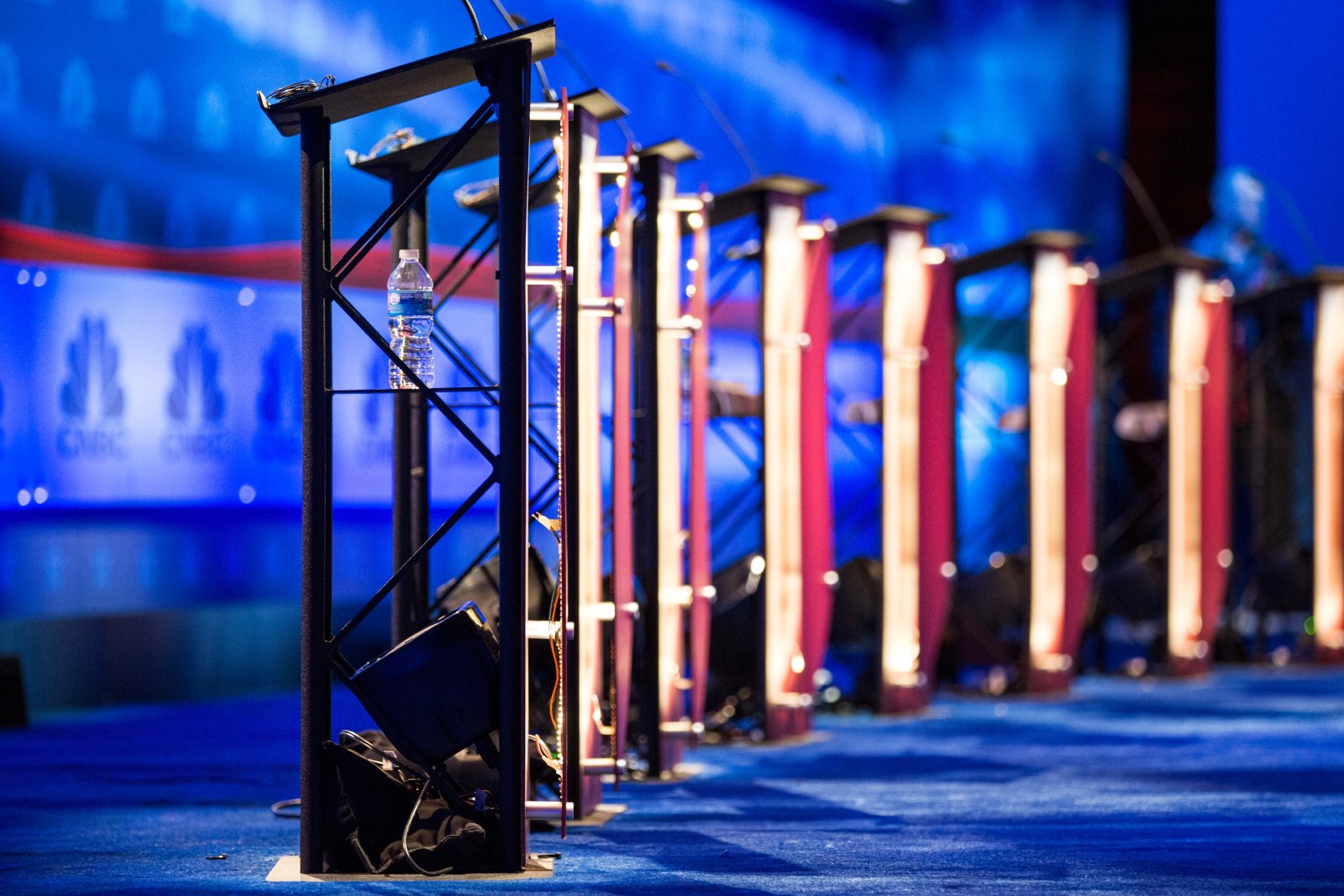Could Trump’s uneventful entrance to the 2024 presidential race actually inspire more Republicans to run rather than push some of them out? Then again, we really don’t have a solid gauge on which candidates, like former VP Mike Pence, were planning to run regardless of what Trump decided.
As for the 2024 Republican primary debates, RNC Chairwoman Ronna McDaniel is already planning for them. That is, assuming she’ll actually remain the RNC Chairwoman moving forward. So far, no competitive challenger seems to be emerging for the post but that could always change.
While speaking with Hugh Hewett this week, the topic of the 2024 GOP primary came up and McDaniel lifted the covers on how the RNC is planning for, what she calls, a “big” first primary debate in 2023.
Hewitt asks McDaniel how the RNC plans to pick and choose which candidates will gain access to the main debate stage. This question hearkens back to 2016 when the GOP held a “main” debate and then held what amounted to a “kids table” debate for candidates that didn’t make it to the top 10 in terms of polling support.
McDaniel replies that this time around, there will be no “kids table” and it’s more likely the field would be split in two with debates on separate back-to-back nights. Here’s the transcript of the discussion:
RM: So listen, but we also want to make sure the voters get to see a lot of the candidates, too. So it’s that. We’re going to have some criteria. I’m not going to get ahead of the debate committee. Dave Bossie has been running our debate committee. He’s done a great job. We’ve been meeting regularly. But there will be criteria, probably fundraising criteria as well as polling criteria, and we’re going to limit what polls we use. We’ve already been looking at the polls that have been just so wrong that we’re going to eliminate from any of our polling criteria. But I think the first stage will be big. And we may have two debates. I mean, that’s just the way it’s going to be, because we don’t want to limit the voters’ choice. And that’s what we’re thinking about right now, but we also don’t want to have everybody on the stage. We have to pass some criteria.
HH: Well, that’s a clue. Two debates. You mean, like back to back debates and then scramble the order of people showing up?
RM: Yeah.
HH: You’re not going to put people at the kiddie’s table?
RM: I’m not going to give you any more clues, because I don’t…
HH: Oh, I like that. I heard two debates. I heard that.
RM: Yeah. But send us your, they wouldn’t be back to back, I think. I think we’d do them on different nights so they get the same time slot. But if you have any other suggestions, send it our way, because the debate committee is continuing to meet right now.
A couple of things jump out here. The first is that McDaniel assumes the field will be large enough to warrant separate debate nights. Realistically, the most you can fit on one stage both physically and for constraints of time is around 10 candidates. Even that is a stretch as a two-hour event ends up with some candidates getting no more than three to four minutes of speaking time while the top polling candidates get all the questions.
McDaniel must assume that aside from Trump and DeSantis, there would be another dozen or some GOP names in the ring that would likely qualify for the debate stage. Squinting hard you can see maybe 4 to 5 “serious” candidates, the rest are in the “not a chance” column.
The back-to-back debate broadcasts on separate nights seem like a better idea than having an early debate followed by a primetime debate. Perhaps better yet would be to actually limit the field to candidates that have a shot at winning a primary.
We’ll learn more once we get into January and some of these party rules become finalized.
Donate Now to Support Election Central
- Help defend independent journalism
- Directly support this website and our efforts
